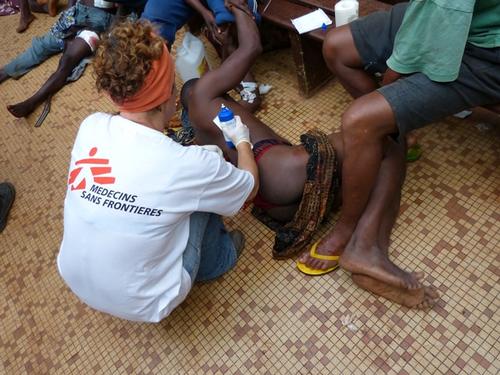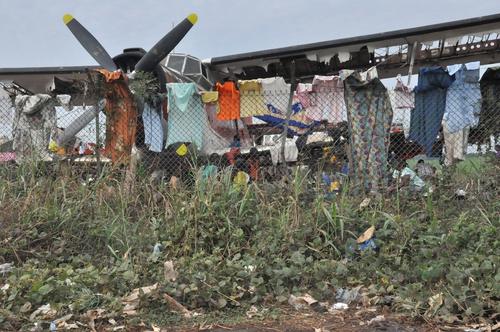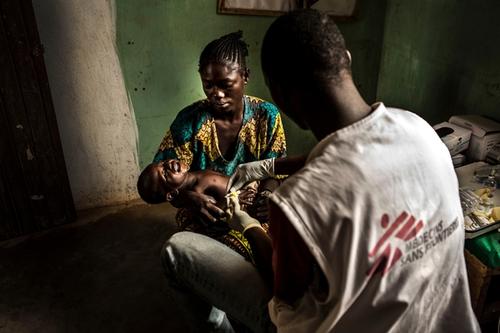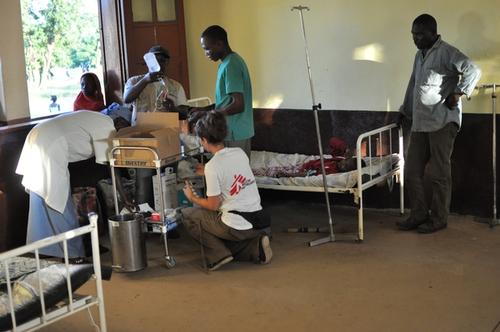Bangui, 9 December 2013 - Médecins Sans Frontières (MSF) calls on all parties involved in the current conflict in the Central African Republic to allow the wounded and ill to safely obtain the critical medical care they need. MSF calls for an end to violence against patients, civilians and medical staff working in health care facilities in Bangui and throughout the country.
Summary executions
The wave of violence that began in Bangui on December 5 also affects health care facilities in the capital of the Central African Republic. Last Thursday, staff and patients at Amitié Hospital witnessed summary executions carried out by armed men inside the hospital. “On Thursday, our teams saw a dozen corpses lying in front of the hospital,” says Rosa Crestani, MSF emergency coordinator. Hospital staff no longer want to work there because of the insecurity. Several patients remain, but Amitié Hospital is no longer operating. Some members of the hospital staff have gone to support the teams at the community hospital, where some of the wounded were also transferred.
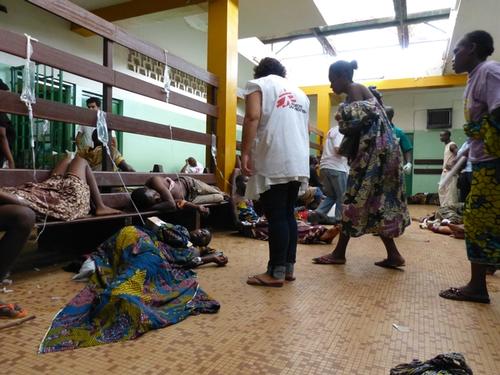
Violations of international humanitarian law
The situation is also very tense there. Patients, our staff and Ministry of Health employees have been threatened and pressured. Our teams have had to step between armed men and patients on several occasions. “We are continuing our work, but this violence inside the community hospital is unacceptable and constitutes a serious violation of international humanitarian law. It has an obvious impact on medical treatment, slowing the delivery of care and leading hospital staff to temporarily leave their posts,” says Thomas Curbillon, MSF head of mission. “In addition, the violence means that many wounded patients will probably not try to get to medical facilities. Aid deployment as we define it – neutral, impartial and independent – cannot be provided in the face of threats and violence.”
MSF emphasizes that all parties to the conflict in the CAR - in Bangui and throughout the country – must respect civilian populations and medical facilities and must allow the wounded and ill to be treated without discrimination. MSF calls for a ban on any armed presence in health care facilities and a halt to attacks and threats on patients and medical workers, both Central African and expatriate. MSF is an international medical organization and operates independently of any authority. Our only goal is to meet populations’ medical and humanitarian needs.



